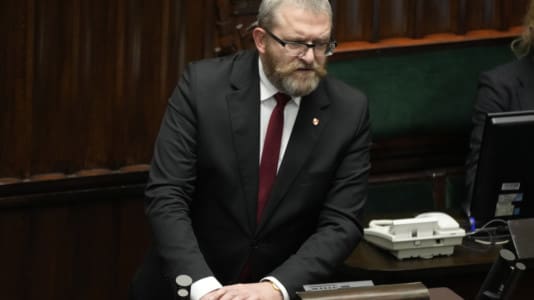On Wednesday, European Commission President Ursula von der Leyen said in a parliamentary debate that the EU will withhold €20 billion in funding from Hungary.
Von der Leyen warned: “They are suspended for reasons that include concerns on LGBTIQ rights, academic freedom and asylum rights. Some are blocked under the conditionality mechanism. And they will remain blocked until Hungary fulfils all the necessary conditions.”
“These are the rules,” she said. “We have all agreed to them, and we will follow them. This is what makes the rule of law stand out from arbitrary power.”
“Every euro cent should be paid to Hungary without any further delay. Ideological blackmail is not acceptable,” said Balazs Hidveghi, who belongs to Hungary’s ruling Fidesz party.
In response, Hungarian newspaper Magyar Nemzet asked political scientist Bernadett Petri about the frozen funds.
“There are still open issues between the EU commission and Hungary, as the imposition of gender ideology and the EU migration policy, which is being imposed against the will of the member states, are all issues where Hungary’s value-based choice is far from the European Commission’s vision. Negotiations are currently underway, and Brussels should follow common sense and realize that no member state, including Hungary, can be forced to give up its own interests, sovereignty and choice of values,” Petri said.
“This is not the first time this threat has been made, nor is it the first time this lawsuit has been brought, since in the autumn of 2021 the European Parliament had already brought an action before the European Court of Justice, accusing the commission of breach of duty, or more precisely of failure to act in breach of the Treaties, for not having applied the recently adopted rule-of-law conditionality regulation to Hungary and Poland,” she added.
“The commission then bowed to pressure and suspended EU funds to Hungary under the regulation. For the EU institutions, which are obliged to cooperate loyally both among themselves and with the member states, this potential new lawsuit is a turn of events that shows that the slowly departing MEPs are using every possible means to blackmail Hungary financially.”
Petri said that in its relentless campaign against Hungary the EU is clearly driven by double standards.
“This double standard is evident, as Brussels is failing to address substantive issues that are among the most basic requirements of the rule of law and democracy. The EU’s own polls show that voters have also noticed this and are not satisfied with the practices of the EU institution,” she said.
“The same polls show that the 2024 European elections will see a much higher turnout than ever before, with voter criticism at an unprecedented level,” Petri added. “Looking at the election results forecast, there is a potential for a reshuffle in European politics, with the right-wing parties gaining significant strength and the liberal and green parties suffering a historic defeat on the basis of current data. 2024 could therefore be a year of conservative advance and accountability in Europe.”





